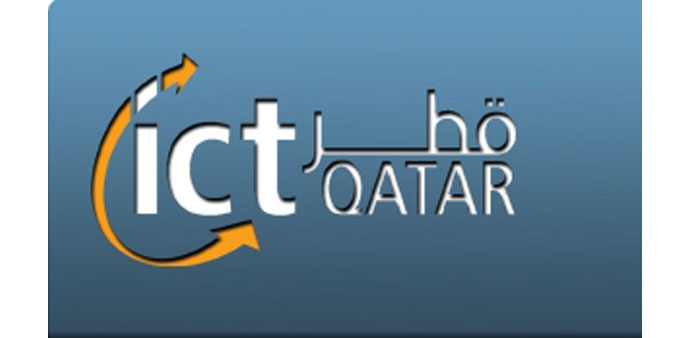Compared to the global average, Internet users in the Middle East and Africa (Mena) region typically have very similar levels of concern towards their email or online accounts being hacked, according to a new study conducted by Qatar’s Ministry of Information and Communications Technology.
The study into the attitudes and behaviours of Internet users in the Mena region, believed to be a first for the region, was launched on the sidelines of the third edition of the Qatar ICT Conference and Exhibition, Qitcom 2014, which concluded yesterday.
Covering 14 Middle East countries, the report explores the attitudes and behaviours of Internet users in Mena towards important ICT-related issues such as cyber safety, online security and data privacy.
The conclusions were compiled using an online survey of 2,793 Internet users in the region, which were then benchmarked against an existing dataset – produced by the World Economic Forum - of 8,432 respondents from 44 other countries across the globe.
In undertaking this work, the ministry worked in partnership with the Oxford Internet Institute at the University of Oxford and the Samuel Curtis Johnson Graduate School of Management at Cornell University. The fieldwork was conducted by two of the world’s leading market research firms - comScore and Toluna.
Speaking at the report launch, Damian Radcliffe, section head of Digital Impact & Emerging Technologies at the Ministry of Information and Communications Technology, noted that the research identified many parallels between the regional and global samples.
“The Internet users in Mena are also among the most enthusiastic about the positive impact that the Internet is having on their lives, leading the way in terms going online to check the news or to make video or audio calls,” he explained.
Mapped against the world average, the report also found that Mena respondents were more supportive of the idea that government authorities should block harmful content online that is “racist” or “discriminatory”, or potentially damaging to children.
Further differences between Internet users in the region and the wider global sample were also found in eCommerce and online banking. Mena Internet users are the least likely to participate in these online activities, despite Mena respondents ranking banks and financial institutions as the online players they trusted the most.
“This apparent contradiction reflects how the Arab world is balancing adoption of ICT with a desire to still do some tasks in traditional ways,” Radcliffe said. “But these high levels of trust are also a great platform to help drive online adoption and safer Internet behaviours.”
Commenting on the report, which is part of the Rassed research programme, established by the ministry, Radcliff observed the inconsistency between users claiming to be “careful” online and their practising safe Internet behaviours.
“While 50% of the Middle East’s Internet users say they are ‘very careful’ when using the Internet, only a few of them ever scan their devices for viruses, or refrain from downloading attachments and documents from people they don’t know,” he said. “This is not unique to the Mena region,” he explained, “as we found similar results across the globe.”
“But it also emphasises the importance of the work being done by the ministry and other organisations in Qatar to promote cyber safety. We need to continue to work together to educate and empower Internet users so that their online experiences are safe as well as useful and enjoyable.”

